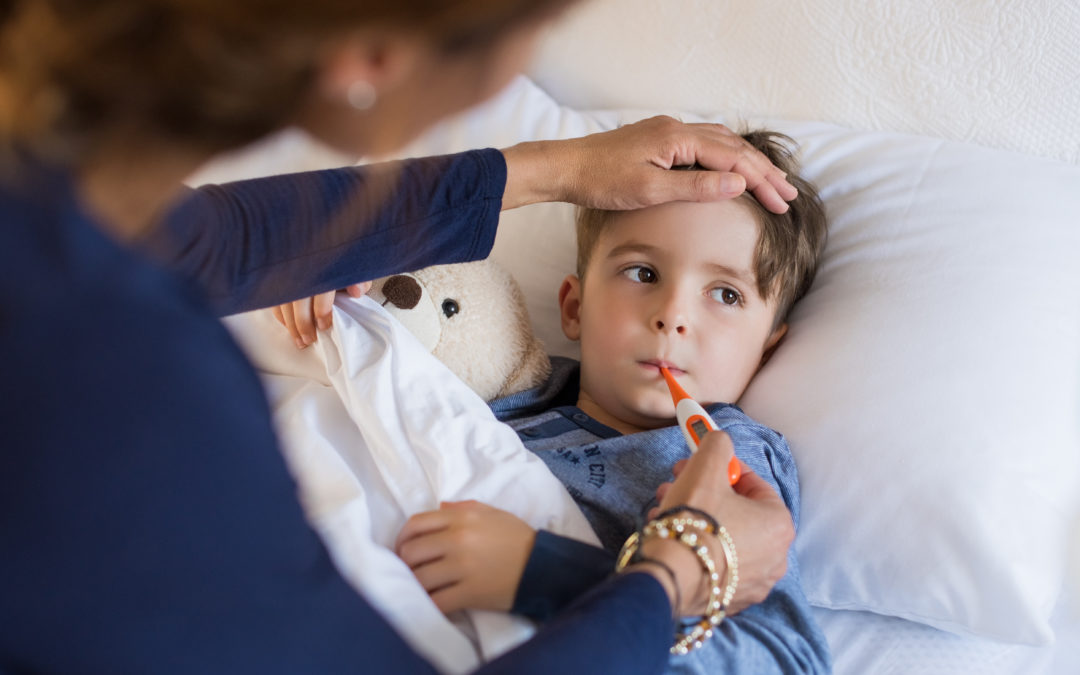Winter is synonymous with all kinds of “sickies”. We all know how awful it feels to push our bodies beyond their capabilities when we are not feeling 100% ourselves. This is no different for our children. Expecting a child to manage the usual daily classroom routine when they are under the weather is too much to ask and can result in longer recovery periods, not to mention major risks in the spreading of communicable diseases.
The National Institute for Communicable Diseases has a lot of information on what communicable diseases are, what causes them and how they are spread. Some of the communicable diseases most prevalent in Early Childhood Development include Influenza, Chicken Pox, Common Colds, Hand, Foot and Mouth Disease, Lice and Impetigo, to name just a few.
When sending your child to school or an educare centre with symptoms of a viral or bacterial infection, you are not only risking the health of the rest of the children, the teachers and the support staff, but also the health of your own little one. Secondary infections may occur due to your child’s immune system being compromised.
Guidelines to follow when your little one is not well include keeping your child home if they display any of the following symptoms:
- Fever: Fever is defined as having a temperature of 38°C or higher taken under the arm, in the ear or on the forehead. This is the most important indicator we have for little ones who are pre-verbal an unable to communicate their symptoms.
- Fever is often accompanied by a sore throat, rash, vomiting, diarrhoea, earache, irritability or confusion.
- Diarrhoea: runny, watery, bloody stools, or 2 or more loose stools within the last 4 hours.
- Vomiting: 2 or more times in a 24 hour period. Note: please do not bring your child if they have vomited in the night.
- Breathing trouble, swollen glands, loss of voice, hacking or continuous coughing.
- Thick, green discharge from the nose or throat.
- Frequent scratching of the body or scalp due to lice, rash, or any other spots that resemble childhood diseases, including ringworm.
- Any form of eye irritation that involves redness, itching and tearing of the eyes. As well as discharge or crusting around the eyes.
Displaying any of these symptoms whilst at the centre will lead to the parent or legal guardian being contacted to immediately collect the child.
Your child may return to the centre if:
- They have not shown any of the above symptoms in the last 24 hours.
- They have been on prescribed antibiotics for at least 48 hours and do not show adverse effects such as diarrhoea.
- They are showing a happy and healthy demeanour and have fully returned back to normal.
We know that it is stressful for parents to take time off work for their children who are ill and leave days do not always permit for this, but the importance of keeping our centres safe and healthy is paramount and we need to all make decisions in a way that we would hope the families of the other children in our child’s class would. Making sure children are healthy and able to attend a centre means fewer sick days for all children, teachers and support staff, putting the needs of our little ones first and ensuring we don’t create a cycle of passing sicknesses back-and-forth between one another during the winter months.

Recent Comments